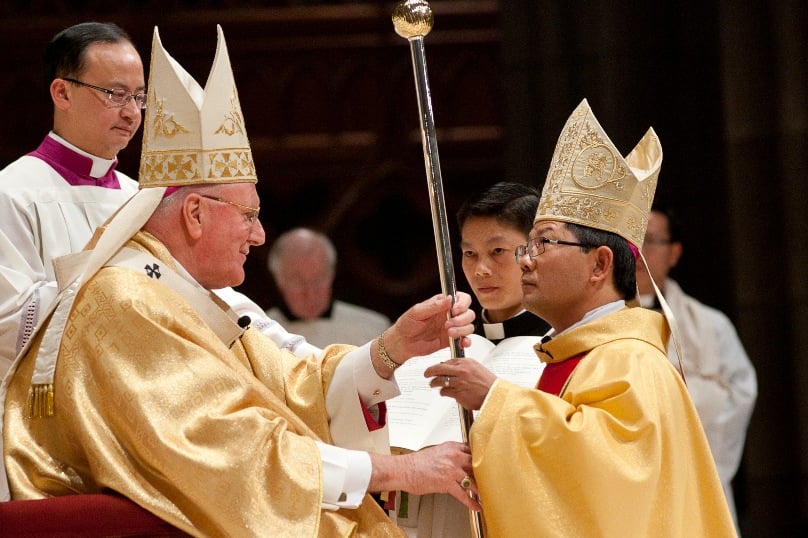
In an extraordinary homily given before Melbourne’s legal fraternity, Melbourne bishop, Bishop Vincent Long OFMConv, has described the child sexual abuse crisis as a systemic betrayal of the Gospel, one in which the Church put image and prestige before its duty to care for the most vulnerable.
Bishop Long was speaking at the annual Red Mass at St Patrick’s Cathedral on Monday, a Mass to invoke God’s blessing on legal practitioners and officials at the beginning of the legal term.
“With the ongoing Royal Commission into sexual abuse, the spotlight has been shining on the Church’s dismal failure,” Bishop Long said.
“The spotlight, which is also the title of the current film on the subject, has revealed just how far we have drifted from the vision of Jesus, in Boston, Melbourne and elsewhere.
“Instead of demonstrating that fundamental ethos of care for the victims, the Church has been shown to have cared primarily for its own security and interests. It is a shameful indictment not simply on the perpetrators and their enablers but the Church’s collective systemic betrayal of the Gospel.
“We cannot regain our moral credibility without first reclaiming the innocence and powerlessness of the humble Servant-Leader, and making it the cornerstone of all that we do and all that we are as the Church.
“It has never been so tough to be a Catholic. But then, we need to remember that the tough times can be the blessed times.
“The Church was not at its best when it reached the heights of imperial power in what was known as Christendom.
“The Church was at its best when it was poor, persecuted, without power and wealth. Consistently, we true believers are challenged to be the beacons of hope in the midst of pain, suffering and despair. This tough time can be the catalyst for rebirth and transformation.”
Bishop Long also exhorted the Church to be ever watchful about being too comfortable with the “status quo” and to embody Christ’s “audacious identification with the victims of injustice”.
“Ever since Pope Francis unexpectedly came onto the scene, he has challenged us to reclaim the liberating message of the Gospel,” the bishop said.
“For him, it has little to do with maintaining the status quo, especially when that status quo is less than what God wants for us as individuals and as a community.
“Australia is a great country but where it is in terms of its treatment of asylum seekers, the indigenous and marginalised people, it should shame us into action.
“Fifty years ago, Martin Luther King Jr lamented that the Christian churches were largely adjusted to the status quo, standing as a tail light behind other community agencies rather than a headlight leading people to higher levels of justice.
“We find (an) echo of King’s prophetic stance in Pope Francis’ Joy of the Gospel (Evangelium Vitae). ‘I prefer a Church which is bruised, hurting and dirty because it has been out on the streets (with the poor), rather than a church which is unhealthy from clinging to its own security’.
“We cannot be true to the Gospel if we safeguard our privileges and fail to deliver justice and human dignity to those who are unjustly deprived of it. It is God’s vision of justice, mercy and the fullness of life for all that consumes us and spurs us on.”
Despite his hard-hitting remarks, the bishop’s address was not devoid of some levity:
“They say God works in mysterious ways and I am the living example of it for better or for worse.
“Thirty-five years ago, I crossed the Pacific Ocean, not knowing what was in store for me on the other side.
“Fast forward 7 days adrift on the high seas, 16 months in a refugee camp and 30 odd years of living here, I find myself among ‘the new Irish’ of the Catholic Church in Australia and on occasions wearing a pointy hat – a rather unlikely outcome.”
